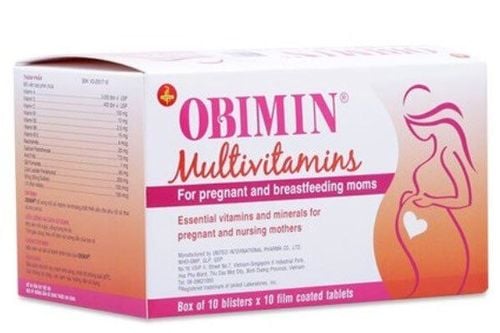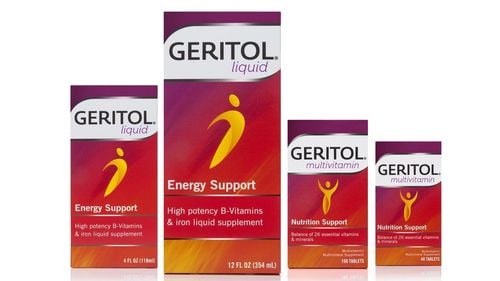Vitamin C is a water-soluble nutrient with numerous functions in the body. It helps boost the immune system, supports collagen production, and aids in wound healing. Vitamin C acts as an antioxidant to protect cells from damage caused by free radicals. However, humans cannot synthesize Vitamin C on their own. Therefore, to meet the recommended intake of Vitamin C, it is essential to obtain it from foods or supplements to maintain good health.
1. The Role of Vitamin C in the Body
Vitamin C, also known as ascorbic acid, is essential for the growth, development, and repair of all body tissues. It is involved in numerous bodily functions, including collagen formation, iron absorption, immune system functioning, wound healing, and the maintenance of cartilage, bones, and teeth.
Vitamin C is one of many antioxidants that help protect the body from damage caused by free radicals, as well as harmful chemicals and pollutants such as cigarette smoke. Free radicals can accumulate and contribute to the development of health conditions like cancer, heart disease, and arthritis.
Vitamin C is not stored in the body (excess amounts are excreted), therefore, overdosing on vitamin C is generally not a concern. However, it is important not to exceed the safe upper limit of 2,000 milligrams per day to avoid stomach discomfort and diarrhea.
Water-soluble vitamins, including vitamin C, must be consumed regularly through the diet to meet the body’s needs. Therefore, it is advisable to eat fruits and vegetables rich in vitamin C or cook vitamin C-rich foods with minimal water to prevent the loss of water-soluble vitamins during cooking.
Vitamin C is easily absorbed from both food and supplements. Additionally, it enhances iron absorption when both are consumed together.

2. The Benefits of Vitamin C for Health
Vitamin C can offer health benefits by alleviating symptoms such as:
- Stress: A recent meta-analysis found that vitamin C is beneficial for individuals with weakened immune systems due to stress—a very common condition in society. Because vitamin C is one of the nutrients most affected by stress and is often deficient in people who consume alcohol, smoke or are obese.
- Cold: While vitamin C may not be a cure for the common cold. However, some studies suggest it can help prevent more severe complications. Evidence from several studies indicates that taking vitamin C during a cold or flu can reduce the risk of developing complications such as pneumonia or lung infections.
- Stroke: Although research findings are inconsistent, a study published in the American Journal of Clinical Nutrition found that individuals with the highest blood levels of vitamin C had a 42% lower risk of stroke compared to those with the lowest levels.
- Skin Aging: Vitamin C affects cells both inside and outside the body. A study published in the American Journal of Clinical Nutrition examined the relationship between nutrient intake and skin aging in 4,025 women aged 40 to 47. The results showed that higher vitamin C intake was associated with a lower likelihood of wrinkles, dry skin, and visible signs of skin aging.

In addition, other studies have also shown the benefits of vitamin C, such as improving age-related macular degeneration, reducing inflammation, and lowering the risk of cancer and cardiovascular diseases.
See also the uses, dosage, and side effects of Vitamin C
3. How to take vitamin C
Vitamin C comes in various forms, such as ascorbic acid, mineral ascorbates (sodium ascorbate, calcium ascorbate), or ascorbic acid combined with bioflavonoids. For vitamin C supplementation, ascorbic acid is a good choice. Because, it has high bioavailability, (meaning the body absorbs it easily).
Additionally, since most multivitamins contain ascorbic acid, choosing a multivitamin not only increases vitamin C intake but also provides other essential nutrients.
To ensure the body gets enough vitamin C from supplements, look for products that provide 45 to 120 mg of vitamin C, with the dosage depending on age and gender.
When should vitamin C be taken?
The best time to take vitamin C is on an empty stomach. This means taking it in the morning, 30 minutes before a meal, or two hours after eating. Vitamin C is a water-soluble vitamin, making it easy for the body to absorb. The body only uses the required amount and any excess is excreted through urine. As a result, this vitamin is not stored in the body.

4. Recommendations for vitamin C intake from food
Recommended dietary intake of vitamin C from food by age and gender:
- Children aged 1 to 3 years: 15 mg
- Children aged 4 to 8 years: 25 mg
- Pre-teens (9 to 13 years): 45 mg
- Teenagers (14 to 18 years): 65-75 mg
- Adult women (19 years and older): 75 mg
- Adult men (19 years and older): 90 mg
- Pregnant women: 85 mg
- Breastfeeding mothers: 120 mg
The U.S. Food and Drug Administration (FDA) has issued the Daily Value (DV) recommendations. The DV is developed for food and supplement labeling as well as to help individuals determine the percentage of a nutrient in a single serving of food relative to daily needs. On food labels, this value is displayed as %DV. The DV for vitamin C recommended for adults and children aged 4 years and older is 60 mg. However, as of January 2020, this value increased to 90 mg.
5. Food sources rich in vitamin C
Fruits and vegetables are the richest sources of vitamin C. However, vitamin C is easily destroyed by factors such as heat and light,... Therefore, it is important to know how to minimize vitamin C loss in fruits and vegetables.
Some fruits and vegetables high in vitamin C include citrus fruits, green peppers, strawberries, tomatoes, broccoli, white potatoes, sweet potatoes, dark green leafy vegetables, cantaloupe, papaya, mango, cauliflower, cabbage, raspberries, and blueberries.
References: webmd.com; healthline.com
To arrange an appointment, please call HOTLINE or make your reservation directly HERE. You may also download the MyVinmec app to schedule appointments faster and manage your reservations more conveniently.









